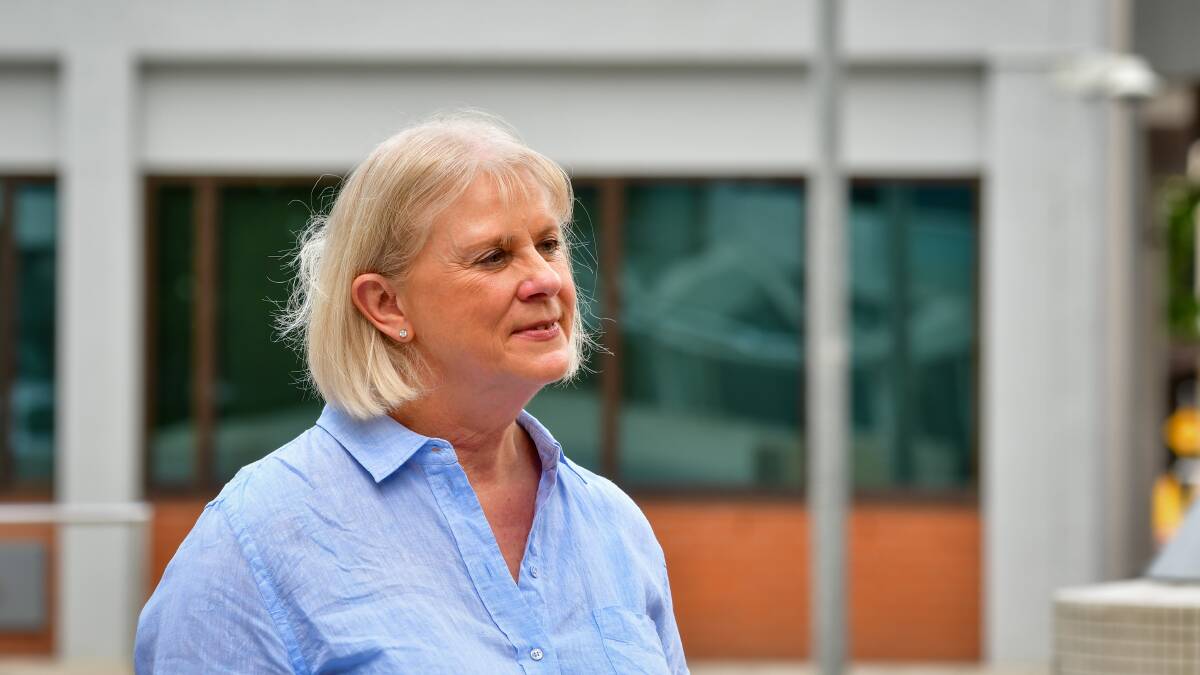
Health authorities are undertaking modelling around what the dual-impact of COVID-19 and influenza will be on Canberra's health system, as experts warn it could be a tough winter for high-risk groups.
The ACT has avoided influenza outbreaks since the COVID-19 pandemic, mainly due to closed international borders, but authorities are braced for a flu outbreak coupled with a winter peak in COVID cases in the territory.
Flu cases have been at a historic low in the ACT over recent years. An influenza surveillance report showed there were only nine confirmed cases of flu in the territory last year. There were also very few cases of flu in 2020, with only 194 notifications made to ACT Health.
But this came after a horror flu season in 2019 in Canberra. There were close to 4000 cases reported to ACT Health and 10 people died from the illness.
ACT Health acting executive group manager of the COVID-19 response Robyn Walker said various modelling had indicated it would be a low to moderate influenza season in the ACT.
"What we are expecting is that because we've had international borders open it may be that we'll get an increased incidence of influenza this year compared to last year, when we had very little," Dr Walker said.
"[We also had very little] because people were in lockdown, wearing masks and borders were shut."
Authorities have warned that restrictions will be reintroduced in the ACT if there is a COVID-19 resurgence in winter. Planning is under way to ensure there are enough hospitals beds to handle both COVID-19 and influenza patients.
ACT health authorities are not yet sure what the potential impacts of the flu season and COVID-19 will be but are undertaking modelling at the moment to understand the effect.
"There are many variables to be modelled and this work is not anticipated to be completed for several weeks," an ACT Health spokesman said.
"ACT Health is actively planning for the influenza season in coordination with the Commonwealth and other state and territory health authorities.
"Some of the areas currently being considered include testing and surveillance considerations, impact on high-risk settings - particularly disability and aged care - and how to manage impacts on the health system."
ACT Health will also ramp up campaign efforts for people to get their flu vaccination this year and will work closely with general practitioners and pharmacies in the rollout. Authorities will also explore whether influenza vaccines could be administered at COVID-19 vaccination centres.
But while COVID-infected patients are required to quarantine for seven days when they are infected with the virus, health authorities are unlikely to demand the same from influenza patients.
"That's not what we would be recommending. What we do recommend is that you don't soldier on, what we recommend is that people who have got flu-like symptoms should stay at home until they've recovered," Dr Walker said.
Doctors will also be on the lookout for rare cases of "flurona" - this is when a person is infected with COVID and influenza at the same time. Studies have shown this is incredibly rare, happening in fewer than 1 per cent of cases. Research has also indicated it does not lead to more severe outcomes.
Epidemiologist Andrew Jeremijenko said the winter months could prove to be tough for high-risk groups with both COVID and influenza spreading in the community. The Aspen Medical group medical director urged people to maintain their COVID-safe behaviours, saying the system could be overwhelmed if people ignored the basic public health measures that have been put in place over the past two years.
"This winter will be a challenge for us all with Omicron and its variants on the rise plus influenza in the community. It is vital that we continue to practice what we learnt over the course of the pandemic when it comes to social distancing, washing our hands and the protocols around coughing and sneezing in public," Dr Jeremijenko said.
"These common-sense measures plus vaccine boosters should help reduce the spread through this challenging period and ease the pressure on our health system. We owe it to our health professionals to limit the spread as many are exhausted after years of exertion and toil dealing with the consequences of the pandemic waves."







